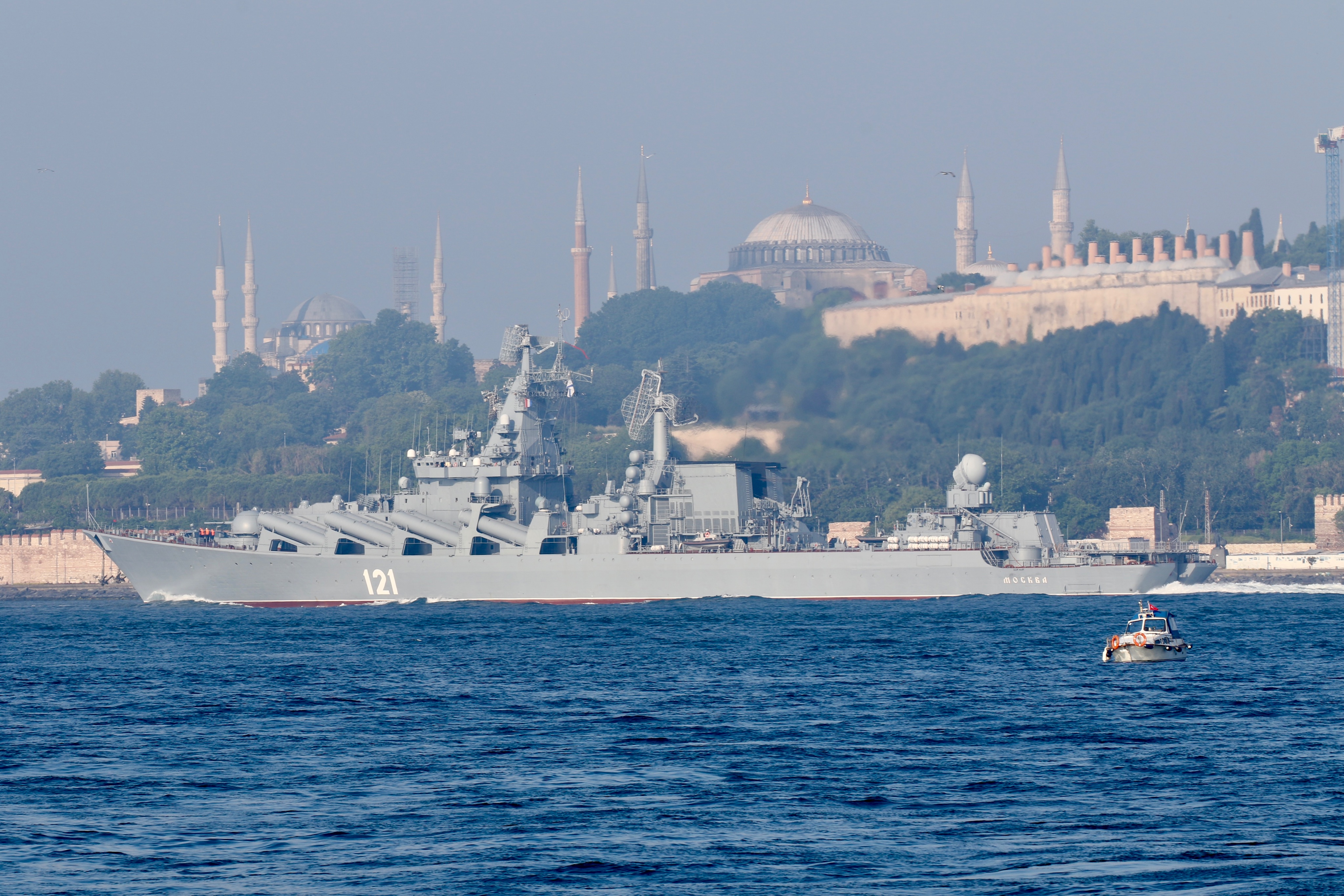
When Russia invaded Ukraine a year ago, the Black Sea was suddenly in the spotlight.
The Black Sea, which borders Ukraine, Russia, Georgia, Bulgaria, Romania and Turkey, was a key naval area for both Russia, which has a fleet dedicated to the area, and to Ukraine, in addition to a path for grain exports from Ukraine.
Within days of the invasion, Turkey closed the Bosphorus Strait to warships, effectively closing off the Black Sea to any country that did not border it. The last U.S. warship left in December 2021. Russia was left with the ships it had flowed into the region to join its existing Black Sea Fleet.
There was some speculation that Russia could prepare an amphibious assault on Ukraine with the goal of taking over the port city of Odesa. But the amphibious assault did not materialize. Nor did any other large naval maneuvers. For the most part, the Black Sea has played a commercial role in the conflict, affecting grain exports from Ukraine.
Russia and Ukraine are in a stalemate when it comes to the Black Sea, similar to that of the land fight, said Mark Cancian, a senior advisor for the Center for Strategic and International Studies’ International Security Program.
Early on, Russia launched naval attacks, taking Snake Island from the Ukrainians. The Ukrainians responded, eventually recovering the island and sinking the guided-missile cruiser RTS Moskva (121). But since then, there has been little maritime activity.
Russia was able to launch a small amphibious assault on Mariupol, a smaller port city, which saw heavy fighting early in the war. However, a larger assault on Odesa was not likely. Russia’s Black Sea Fleet has smaller amphibious ships, limiting how the troops and equipment they are able to carry, Cancian said. While [WHO???] speculated an amphibious assault on Odesa was imminent, , Russia didn’t indicate it planned to launch one, Cancian said.
“You could say that they were deterred from doing raids, but the big amphibious operations were just never within the military capability, and there’s no indication that they thought about it either,” he said. “It’s not the Russian style.”
Brad Martin, director of Institute for Supply Chain Security with the RAND Corporation, said he had expected more activity around the Black Sea.
Neither Ukraine nor Russia needed the Black Sea for resupply, Martin, a retired Navy captain, said. Although the Black Sea could have been a potential choke point, it did not pan out that way in the current conflict.

There have been other naval elements in the conflict. Early into the invasion, Ukraine scuttled its flagship frigate to prevent the Russians from taking it.
Russia’s Black Sea Fleet continues to maintain a presence in the waters, although the ships have largely been in port in Sevastapol or Novorossiysk.
Black Sea Fleet ships are Kalibr-cruise missile capable, and there is evidence that bombardment on cities like Kherson have involved missiles shot from the Black Sea.
Missiles coming from the Black Sea Fleet add another element for Ukrainians to worry about, Martin said, although even without the ships, Russia would have enough ways to fire upon its neighbor.
Russian Black Sea Fleet ships have stayed closer to their ports, especially after Ukrainian troops used Neptune missiles to sink Moskva in a strategic and moral victory. When Russia captured Snake Island in February 2022, a Ukrainian service member there radioed “Go fuck yourself” to the Moskva. The soldier was released in a prison swap a month later and was awarded a medal for his service.
Ukraine sank Moskva in April.
Russia has lost other ships, Cancian said, including a supply ship heading to Snake Island in July and a landing ship in March.
“The bottom line is that Russia learned a lesson about the power of anti-ship missiles and has backed away as a result of those two experiences,” he said.
It also showed the dangers of having a presence in the Black Sea, Martin said. If Russia had been considering an amphibious assault, Moskva’s sinking showed it would be difficult and expensive.
“And I think what essentially did was take a seaborne threat to Ukraine out of the equation,” Martin said.

Moskva had also played a role in the Russian’s control of the Black Sea in the beginning of the war by preventing Ukraine from exporting grain, said Sal Mercogliano, chair of Campbell University’s Department of History, Criminal Justice and Politics. When it sank, so did Russia’s control.
“They’ve really surrendered, basically, the Gulf of Odesa to the open carriage of goods,” Mercogliano said.
The Black Sea has played a larger commercial role than a military one, he said.
Russia blockaded the Black Sea, while Ukraine mined its port. Grain exports were essentially halted, hurting the Ukraine’s economy.
Turkey and the United Nations were able to broker a deal between Ukraine and Russia that allowed Ukraine to export grain from three ports, while Russia was also able to move fuel, grain and fertilizer, Mercogliano.
That deal was extended for four months in November. Mercogliano said he expects it will continue.
But going forward, Ukraine will likely face new challenges with grain exports, he said, as the conflicted disrupted farmers’ normal planting schedules. Ukraine is in the top 10 producers of corn, wheat and soybeans, according to the U.S. Department of Agriculture. It is typically the world’s top producer of sunflower seeds, oil and meal.

The war will continue to affect the Russian and Ukrainian economies, Mercogliano said, and The outcome could rest on which economy suffers more and faster.
“When you get into an attrition style of war like this, it’s sometimes not won on the battlefront, but it’s on the homefront,” he said. “And how long can the economies withstand that?”
As the war continues, there could be a push by the Ukrainians to retake Crimea, Cancian said, although it would likely require longer-range weapons.
“It’s possible to do, but it’s really hard,” he said.
However, it is likely that Ukraine will launch an offensive in the spring, he said. If Ukrainian troops are able to push through to the coast, there will likely be a new maritime environment because they’ll be able to launch missiles from the coast.
“I don’t think they’re going to get that far, but if they do, then some other possibilities open up,” Cancian said.





